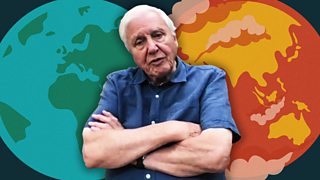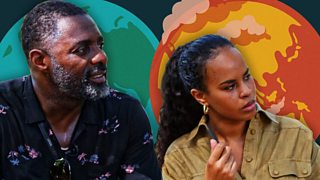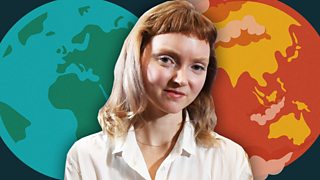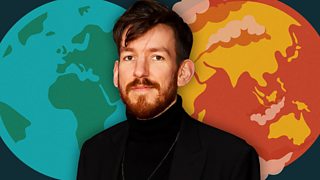Climate podcasters: Our 10 favourite planet-saving solutions
Â鶹ԼÅÄ News science correspondent Victoria Gill and environment correspondent Matt McGrath, from the What Planet Are We On podcast, share their 10 favourite ways to tackle climate change.
Click here for the full list of over 100 solutions we heard during the series.

1. Value waste materials
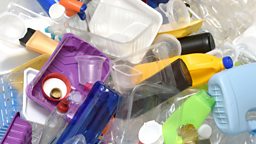
Vic: For me, it’s about valuing materials. I did a story this year about the amount of plastic we’re throwing away. The amount we just toss into landfill could weigh more than two billion tonnes in the next 20 years.
This is not just waste; this is useful material. I think actually putting a value on that - so that it has a value in the market, and it can be made into useful things and can get back into the economy - could make a huge difference.
Find out more about repurposing waste in our episode with Jay Blades, from The Repair Shop.
2. Protect natural carbon sinks
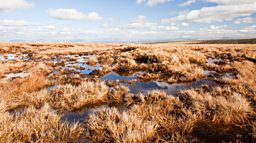
Matt: For me, one of the most simple and obvious things to do is to save the world’s peatlands.
Saving our peatlands is a really simple, really effective solution"Matt McGrath
They’re the biggest sink of carbon dioxide in the world, yet because of farming they’ve been drying up... And the solution to help make them take in more carbon is really simple – just add water!
In the UK, they make up about 12 percent of our lands – and by adding water to them again, we provide more drinking water, prevent floods, and protect these beautiful spaces for all sorts of species to live in, as well as soaking up loads of amounts of carbon.
So, saving our peatlands is a really simple, really effective solution to climate change.
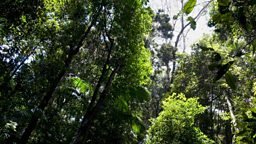
Vic: We hear a lot about deforestation, and it is a huge problem. Since the 1960s we’ve lost about half of the world’s tropical rainforests – and that’s a problem for biodiversity as it’s where most of the world’s terrestrial land-based biodiversity lives. It’s also a huge problem in terms of carbon emissions because those forests absorb carbon.
Now this isn’t an easy problem to solve, but it is something we can solve by protecting the forests that still remain and by enhancing and restoring the forests that have been degraded.
So, we really need to look to our leaders to be planting trees and crucially, to be restoring forests so they stay as pristine and as full of biodiversity as possible.
To learn more about how our economy impacts the natural world, listen to our episode with broadcasting legend, Sir David Attenborough. You can also find out more about how trees support eco-systems in our episode with Monica Bohm from the Zoological Society of London.
3. Shop second hand

Vic: This is one of my favourites – because I have to admit it’s a guilty pleasure for me that I love to shop! Buying second hand and buying that bit less – and thinking about the materials that we use and the whole lifecycle of our clothing. Millions of tonnes of our clothing ends up in landfill and there’s just no need for that.
For as long as clothes have a lifespan, they can go to a charity shop. And there’s loads of great things you can find in charity shops – and you can ease your social conscience by making a donation to a good charity at the same time as giving an item a second life instead of it being thrown away.
Find out more about how clothes shopping could be more sustainable in our episode with Selfridges chair, Alannah Weston.
4. Stop energy waste from buildings

Matt: One of my big bugbears is energy waste from buildings. About 40 percent of global carbon emissions are involved in the construction, the maintenance, the heating, the living in buildings – particularly big office buildings. And so much of that is wasted – about 30 percent around the world.
It’s relatively easy to solve. It just needs tougher laws, tougher applications and fines for people who are wasting energy on this level. It’s an absolute no-brainer.
Find out more about how we can reimagine ‘business as usual,’ in our episode with entrepreneurs Norman Crowley and Sian Sutherland.
5. Label products more clearly
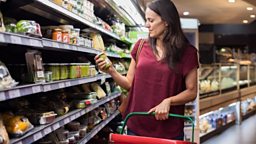
Vic: Something that drives me absolutely crazy is the lack of information that we all have when we’re in the supermarket, when it comes to the things that we buy.
If we labelled that food… it would be easier for us all to do the right thing"Victoria Gill
Food comes from all over the world. Everything that we buy has an impact on the planet in terms of how it is produced, where it is grown, what’s been used to grow it.
And I think if we labelled that food - if there were rules that meant that that food and those products had to be labelled to say just how much carbon had been produced as they were manufactured, grown, made and transported - we could all make better informed decisions and it would be easier for us to all do the right thing.
Find out more about the foods we produce, buy and eat in our ‘A New Respect for Food’ episode with Idris Elba and his wife Sabrina, and part two with climate and food expert Indra Thillainathan.
6. Keep girls in education, globally

Matt: One thing that I think’s really important – and that’s not that easy for any of us to perhaps change very quickly is girls’ education.
If every girl on this planet was able to go to school to the end of secondary school, it would have a massive difference on the amount of carbon that’s produced around the planet.
That’s because over time, population would drop down a bit. We’ve probably have about 1.5 billion less people by the middle of this century and that would equate to about two years’ worth of global emissions – simply from doing the morally, ethically right thing... It would have a massive impact on the world.
We were really inspired by listening to supermodel and businesswoman Lily Cole, and teenage conservationist Bella Lack. They speak about how to remain optimistic, and why it’s okay to be an ‘imperfect environmentalist’.
7. Reduce food waste
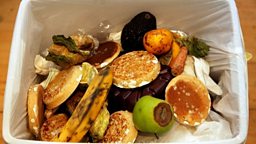
Vic: You might pick up a bit of a theme in the solutions that I’m talking about – but food waste is a massive bugbear of mine, and it’s a huge problem because all the food that we produce has an impact on our carbon output.
According to the charity Wrap (Waste & Resources Action Programme), we now throw away in the UK alone 6.6 million tonnes of domestic household food. There is no need for that.
Think about what you buy, plan your meals and buy less in order that you throw away less. If we can reduce some of that food waste, we can stop just spewing carbon out by producing food and then throwing it into landfill.
8. Generate community energy

Matt: One of my favourite solutions is something that sounds really boring, but it’s actually really important.
It’s called community energy and essentially it means small groups of people all over towns and cities all over the country and all over the world coming together to generate electricity, generate their own power.
This is a massive, massive thing and it’s growing all over the world. In Denmark, about 80 percent of the wind turbines are community owned, which means that jobs and money and value go into those communities. In the UK alone, that could be transformative over the next 20 years as we aim for net zero.
Find out more about how climate solutions could benefit the economy and communities, in our episode with economists Kate Raworth and Rebecca Henderson.
9. Follow the Planetary Health Diet

Vic: One of my favourite solutions – because it just cuts through all the noise that we hear about what we should and shouldn’t be eating to have less of an impact on the planet – is something called the .
[It’s] better for the planet… but it’s also better for our health"Victoria Gill
And the brilliant thing about this is you can just search for it online and there’s a reference for a plate of food that essentially we should all be eating every day.
So it gives us that balance of fruits and vegetables, whole grains, plant proteins and modest amounts of meat and dairy that’s better for the planet, much more sustainable, but it’s also better for our health. So it gives us a reference guide as to the different amounts of food that we could and should be eating.
Please note: The Â鶹ԼÅÄ is not responsible for the content on third party websites.
10. Put a price on carbon
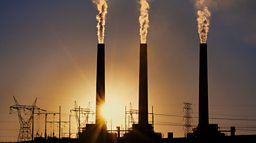
Matt: One of the worst things about climate change, in my view, is the fact that whatever we do now, we don’t exactly feel the impacts of it. It’s future generations that end up paying for it and it's a real problem to equalise that.
To me, the number one solution to climate change is put a price on carbon"Matt McGrath
How do we make it fairer on the future for the things that we’re doing now? Of the fossil fuels we’re burning? And the way to do that – and the most important solution in my opinion – is to put a price on carbon. Because that means everything we do today gets paid for by us doing it now, rather than people in the future.
To me, the number one solution to climate change is put a price on carbon and make it work. One of the easiest ways a carbon price could work would be a carbon tax, for instance. So that whenever you buy a product, the amount of carbon in it can really determine the price. So the more carbon that’s in something, the more you pay for it.
Sounds really simple, it’s complex to do, but incredibly effective.
How do we bring leaders together to make the political changes needed to tackle climate change? Listen to our episode with former UN climate chief Christiana Figueres.
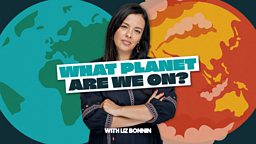
So here are just some of Matt and Vic's favourite solutions from the What Planet Are We On podcast.
If you want to see the full long-list of over 100 solutions highlighted in the series, you can see the list and which episode they came from here.
And of course, you can listen to the full series on the Â鶹ԼÅÄ Sounds app!
Have you got any solutions you'd like to share with us? Let us know by emailing what.planet@bbc.co.uk, or using the hashtag #WhatPlanetPodcast.

